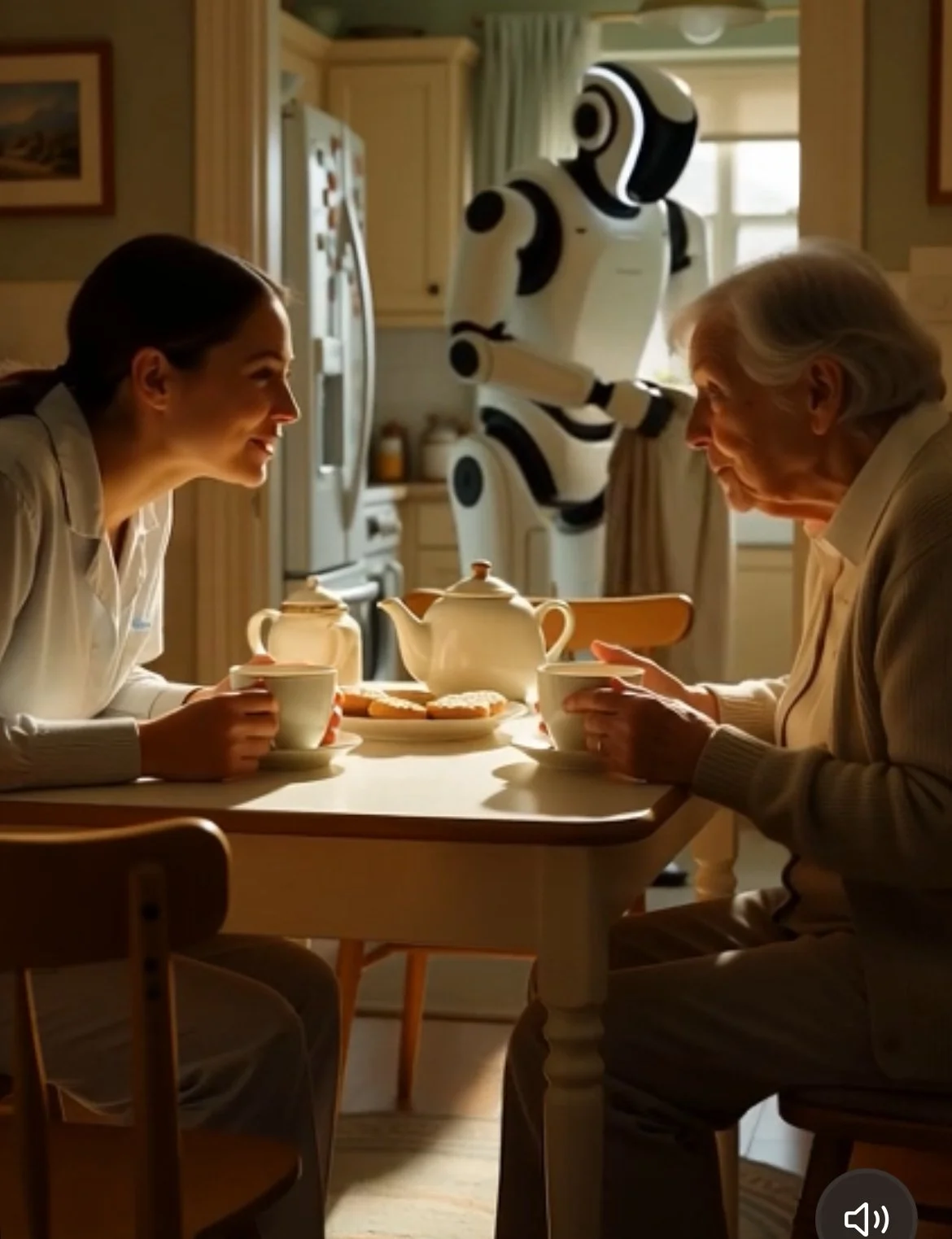Artificial Intelligence: Threat, Opportunity or Both?
What Christian Entrepreneurs in Bristol Are Saying in 2025 And 5 Things the Church Can Do Right Now
In November 2025 a group of Bristol-based Christian founders, CEOs, and entrepreneurs spent 48 hours wrestling with one question:
Will large-scale artificial intelligence lead to mass unemployment and universal basic income — or will it, like every previous technological revolution, create more wealth and new kinds of work?
What does it mean to be human in the age of AI and Advanced Robotics?
The conversation was raw, hopeful, and deeply biblical.referred to the sons of Issachar who:
“understood the times and knew what Israel should do” (1 Chronicles 12:32).
This article attempts to distil that discussion (paraphrased, no names, no direct quotes) into insights and ideas that are already shaping how we think about things here in Bristol.
The Poll - Key takeaways
• 67 % of those polled believe AI will create more jobs than it destroys
• 25 % are genuinely uncertain
• Only 8 % fear mass unemployment
Real Bristol Stories.
These are not hypotheticals. They are happening right now in our city in Bristol Spring.
A dyslexic youth worker in a Bristol charity now finishes administrative reports in minutes instead of hours and uses the reclaimed time for face-to-face pastoral care with deeply traumatised teenagers.
A severely dyslexic entrepreneur, for the first time in his life, is writing the stories God gave him twenty years ago.
A man who was sleeping in a tent in Bristol used free ChatGPT to fill in housing-benefit forms, speak the right language to the council, and is now in stable accommodation – and can’t wait for robots to take the hardest manual jobs so the poor can finally rest.
The Big Concerns We Are Naming Out Loud
The vanishing entry-level rung
Every ladder is having its bottom rung sawn off. Junior copywriters, designers, coders, administrators – their learning-path tasks are the first to be automated. We are already seeing founders choose AI over hiring graduates.
Isn’t the learning curve helpful for our character?
If every hard problem can be solved in 30 seconds with a prompt, will we still teach the patient wrestling that forms character and wisdom?
The accountability double-standard
We forgive billion-pound human failures (NHS IT Project, anyone?), but we will probably demand perfection from algorithms. Two million people die in car crashes annually but will we toloerate even a single death by an autonomous car?
The short-term valley
Most of us believe the long-term is abundance, but the transition gap could last a decade. Governments are slow. People will suffer. The church has an opportunity to show what neighbour-love looks like in practice.
Economic History Meets Biblical Wisdom
The group repeatedly cited the 2024 Nobel Prize in Economics (Acemoglu, Johnson, Robinson). Their core finding: no single invention – not even the printing press – has ever produced widespread prosperity on its own. What matters are inclusive institutions that prevent extraction and spread opportunity.
The question became: Will the church in this city help build institutions around AI that reflect Kingdom justice and the fear of the Lord (Proverbs 1:7), or will we leave the field entirely to Silicon Valley and Whitehall?
Here are five clear shared convictions about how we should respond now:
Refuse both worship and fear of AI
Treat it as a powerful tool – neither idol nor demon.
Intentionally apprentice the next generation in irreplaceably human work
Pastoral care, prayer, reconciliation, craftsmanship, beauty-making, hospitality, prophetic imagination – the things that cannot be automated and should never be automated.
Build practical bridges across the coming valley and that will require Kingdom architects and much of the aforementioned prophetic imagination and divinely inspired ideas.
Steward AI redemptively
Perhaps we should use AI wherever it multiplies flourishing (especially for the poor, the disabled, the marginalised) and resist it wherever it erodes God-given dignity. In an age of simulation, let dare to be a voice, not an echo. Live lives so rooted in Christ that people can instantly tell the difference between a language model and a soul indwelt by the Spirit.

